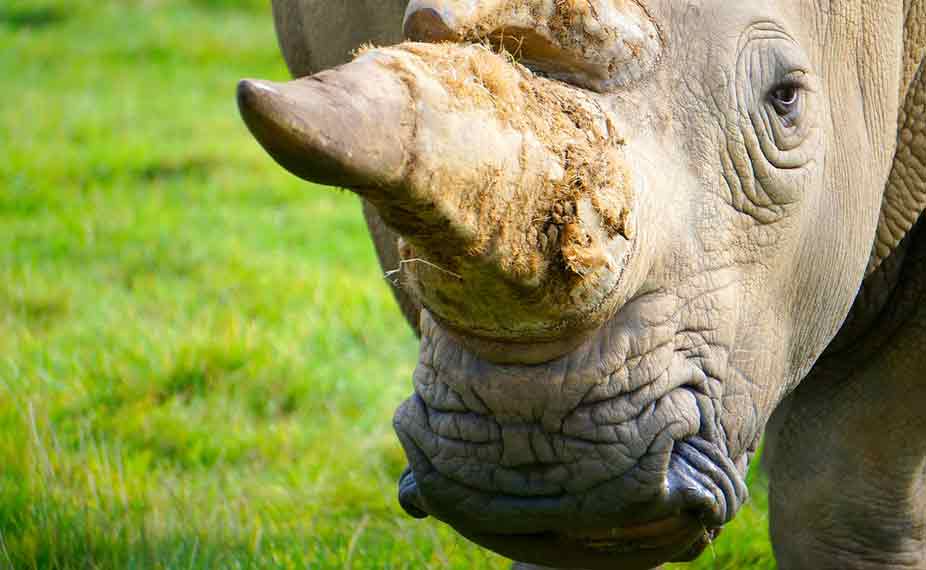Wildlife crimes – like rhino poaching, overfishing or the harvesting of cycads – were once considered a “green” matter. But this has changed. Such crimes have moved higher up on global security and policy agendas.
This is partly linked to concerns about the extinction of species and the demise of ecosystems. It’s also been sparked by the involvement of organised criminal networks in illegal wildlife supply chains.
The UN General Assembly is among those paying more attention to wildlife crimes. It has adopted three resolutions to tackle wildlife crimes in the last two years. Southern African Development Community member states and their respective law enforcement agencies have also declared wildlife trafficking a priority crime issue.
Rhino poaching has particularly captured public attention. A plethora of protective and regulatory national and international measures aimed at disrupting the consumer markets and criminal networks that allow the trade to flourish have failed.
The problem is that such approaches – which have been applied to other kinds of wildlife crime too – most deal with wildlife crime’s symptoms rather than its root causes: a conflict over access to land, resources and benefits
It’s time to change tack and see conservation issues like rhino poaching for the damage they do – especially to poor people.
Little benefit to communities
This is not a policy problem. The important role of local people in protecting and managing natural resources has started to become a policy prerogative in many southern African countries. Implementation and accountability are the issues.
The reality is that wildlife conservation continues to benefit economic and political elites. Local and indigenous communities remain mostly excluded from real benefits, and conservation often comes at a huge cost to them. They lose their land, access to natural resources and cultural sites. They have limited agency and ownership of areas and management. Often the only benefits accruing to communities from wildlife and conservation derive from the poaching profits that trickle down to grassroots level.
Instead of recognising local people as important change agents in wildlife conservation, conservators are calling for more boots on the ground, helicopter gunships and new technologies. Securocrats are leading the war on rhino poaching. Money is spent on security officials and private investigators. Expensive technologies are brought in to deter poachers.
The securitisation of anti-poaching measures has led to increasing anger among communities and negative sentiments against protected areas and conservation management authorities. This is because some poachers return from such areas in body bags, if at all, or end up in correctional centres. In this environment, locals living around parks and reserves see wild animals as being considered more valuable than their own lives.
Structural inequality
South Africa – where I’ve conducted some of my research – is home to some of the world’s largest and most diverse populations of endangered plants, animals and mineral resources. It is also one of the world’s most economically and structurally unequal societies.
This structural inequality is clear in who benefits from conservation in general, protected areas and profits associated with the sustainable use of natural resources. Communities have lost land, hunting rights, access to grazing and cultural sites to make space for wild animals, Disney-style safari parks and private reserves.
The state, hunters, farmers, tourist operators and other economic elites have benefited from conservation. Local communities have enjoyed few benefits apart from menial jobs as trackers, rangers and cooks and occasional donations of game or elephant meat. The restitution of property, cultural and hunting rights has either not been tackled at all or only partially attempted in a top-down fashion with no input from the affected communities.
So it is perhaps not surprising that some people who struggle to make a living might be tempted into poaching. Rhino horn’s street value is greater than that of gold and platinum. Rural residents can make more from poaching and selling a single rhino horn than they usually would in an entire year. This makes communities vulnerable to organised crime networks which recruit poachers from areas around large reserves.
These networks are the real criminals, along with corrupt government officials and members of the wildlife and conservation industries who facilitate the flow of illicit wildlife and plant contraband.
Community empowerment is key
But law enforcement officials and policymakers have been focusing their efforts on reining in poachers rather than buyers and intermediaries. These intermediaries organise and coordinate the transfer of wildlife contraband and other natural resources from the bush to the market. They are usually well connected and have access to transnational trade networks.
Some scholars have started to look at the root causes of environmental and wildlife crimes by considering broader economic, political and systemic factors. Their assessment is that broad based community empowerment is key. This will not only address structural inequality and poverty, but can alleviate wildlife crime and other types of crime. This is borne out by Namibia’s experiences: there, former poachers have become wildlife guardians.
Is the fight against organised environmental crime more important than the dismantling of organised structural inequality and poverty? Or are the responses to these societal ills interlinked? Local communities may, for example, become protectors of wildlife and conservation areas if they were granted agency, ownership and benefits.
Although not perfect, the example of communal conservancies in Namibia provides fascinating insights into the process of incentivising communities. One thing is clear: we need to create happy sustainable communities that benefit from and live in harmony with ecosystems.
This article is based on a longer article first published in the South African Crime Quarterly. The special issue was funded by the Global Initiative against Transnational Organized Crime.
Annette Hübschle
Senior research fellow and postdoctoral researcher: Institute for Safety Governance and Criminology, University of Cape Town
THE CONVERSATION




